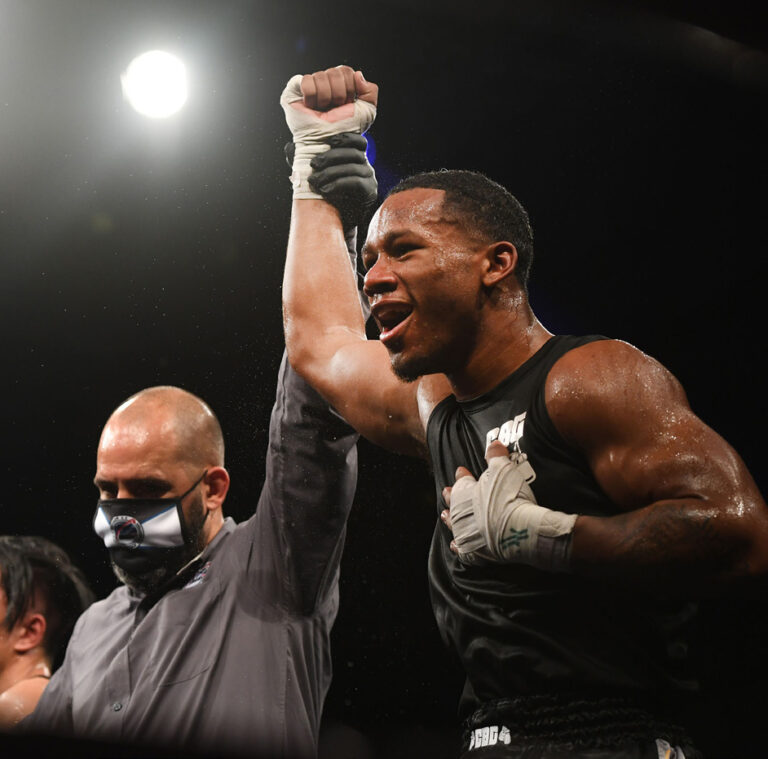by TIM SMITH
Adrian Roach starts boxing training at 5am every day. He also trains every lunch time and again in the evening.
In between all that, he’s working hard in the classroom at Crandall University, New Brunswick, Canada, as he studies for his bachelor’s degree in kinesiology.
Such is the dual workload for a young man pursuing a successful athletic career as well as the long-term goal of a rewarding professional life afterwards.
“It’s a very tedious schedule. You get tired mentally and physically,” said Mr Roach, 20.
“But if you stay on top of it and manage your time properly, it doesn’t have to be a stressful experience.”
Mr Roach started boxing at Controversy Gym, below the Queen’s Club in Hamilton, when he was 15.
He landed his big opportunity when a representative from Crandall visited the Island to ask Bermuda Boxing Federation if it had any suitable candidates for a boxing scholarship.
That solved a dilemma for the sports star, who had planned to go to school in Alabama, but was concerned he might not have enough time to train to continue his boxing development.
Now in the third year of his four-year degree, Mr Roach said: “Usually, the first response I get when I tell people I have a boxing scholarship is, ‘Oh you can get one for that?!’”
While Mr Roach has been tipped for stardom in the boxing ring, he places just as much emphasis on the academic side of university.
“Not only does it allow you to continue with your athletic career, but you get the fallback plan that the degree gives you,” he said.
“As an athlete, you like to think you will go on forever in sport. That’s simply not true. You have a few years of playing, and then you have the rest of your long life.
“By the time I finish boxing, I will have a legacy, and want to make enough money to not have to work again. But I still plan to open a gym and run a physiotherapy business.”
Boxing has already given Mr Roach the experience of fighting in venues including New York and Edmonton, Canada, as well as at the American Boxing Confederation Championships in Ecuador.
But above all that, he treasures the relationships he has been able to build.
“You get to make friends you never would have met. You make lifelong friends. You get to compete and train with them.”
So how does he manage that heavy training and academic schedule?
“It’s pretty easy to stay away from the nightlife, because that’s a very important part of being an athlete anyway,” he said. “I get to bed early so I can function properly the next day! It’s always going to be time management. You have to be dedicated to your craft.
“It’s going to be hard for four years of your life. Once you retire from sport, you have the rest of your life to live the way you want.”

